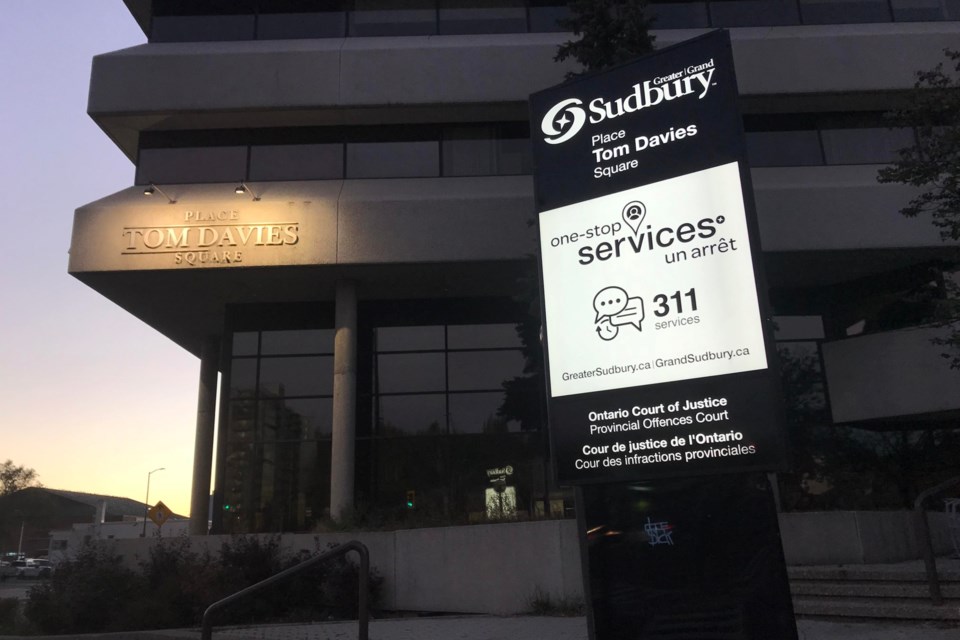After a 16-month wait, a municipal report on how to deal with abandoned or derelict buildings was finally tabled for Tuesday’s city council meeting.
But as for the report's associated resolutions, council directed staff to draft more reports.
“It’s never fast enough,” Ward 12 Coun. Joscelyne Landry-Altmann told Sudbury.com after Tuesday’s meeting, adding that certain things delayed the report, including an election.
Landry-Altmann requested the report in October 2022, which was just prior to a regular civic election.
Since that time, derelict properties were again thrust into the spotlight when the city purchased the Ledo Hotel property last summer.
Although it ended up tying into a broader municipal land acquisition project to accompany an as-yet undefined arena/events centre project (more information on that is now expected at the April 16 city council meeting), part of the city’s expressed rationale for purchasing it was that existing bylaws lacked the teeth to force the owner to do anything with the long-vacant structure.
This “lack of teeth” has also been a longstanding explanation by municipal staff and elected officials for the old Paris Street hospital’s longstanding and ongoing vacant status.
“We all want to have really nice properties,” Landry-Altmann said after Tuesday’s meeting, adding that despite this common goal, it’s a complex matter between what municipalities would like to do and the powers bestowed upon them by the province.
Also recognizing the long wait for municipal action, Mayor Paul Lefebvre moved up the timeline for the next round of municipal reports. In his successful amendment on Tuesday, the reports will all be tabled for city council consideration by the end of September.
In the resolutions initially recommended in the report by city Permits and Approvals Manager Denise Clement, certain reports wouldn't have been tabled until mid-2025.
“This is an important topic for all of us,” Lefebvre said, later adding that he’d “like to see this earlier than later.”
By the end of September, he said, “we’ll have a more fulsome conversation as to what measures can we take, what can we do and act upon, and after that direct staff to propose amendments to the bylaws ... so that we can move forward.”
Although Tuesday’s resolutions merely sought additional information in subsequent reports, Clement’s 11-page report also highlights various bureaucratic hurdles and potential paths toward better addressing derelict properties.
As anticipated, Clement’s report cites vacant building registries as a potential tool.
Her report notes that as of last year, 17 municipalities have adopted a vacant building bylaw or registry to address the issue.
These municipalities require property owners to register vacant properties within a set amount of time after they first become unoccupied. They pay an initial fee, followed by annual municipal inspection costs.
“(Vacant) buildings have the potential to negatively affect the value of surrounding properties, detract from future investments, and become a health and safety hazard,” a City of Oshawa municipal report about a vacant building registry notes.
“Vacant building and land registry or permit bylaws allow municipalities to track vacant buildings and proactively address maintenance issues through scheduled inspections, as well as educate owners on all applicable vacant building standards while reducing risk to emergency services and the public.”
It’s difficult to say how effective this approach has been for other municipalities, as Clement’s report notes they are all relatively new. However, a municipal report will explore this option by September.
Greater Sudbury’s Development Charges Bylaw is also being explored in a report.
As city Growth and Infrastructure General Manager Tony Cecutti explained, the city’s current development charges framework incentivizes property owners to keep vacant buildings standing, regardless of their condition.
In an example provided, an apartment building with 100 units could be torn down and replaced with a 200-unit apartment building, with the owner left paying development charges for the 100-unit difference.
However, if the 100-unit building were torn down more than five years prior to the new build, they’d be on the hook for development charges for all 200 units.
The upcoming report will explore extending the timeline so demolishing derelict buildings earlier will not be disincentivized.
Alongside Lefebvre’s amendment to ramp up the reports’ timeline, Ward 7 Coun. Natalie Labbée requested information on city-owned properties that might be considered derelict.
Landry-Altmann also requested information on increasing user fees, which she said needs to happen, “without a doubt.”
Last year, city Bylaw Services applied more than $40,000 in user fees associated with orders related to the city’s Property Standards Bylaw, and more than $204,000 in recovery applied to the tax roll for work completed on behalf of property owners to become compliant.
This doesn’t appear to be enough of a deterrent, Landry-Altmann said, adding, “I want to see the user fees increase by a lot.”
The city’s Property Standards Bylaw “is recognized as generally effective in the management of property standards for all properties across the municipality but does not specifically address vacant derelict properties,” according to Clement’s report.
This, too, will be explored in municipal reports tabled by September.
Although disappointed by how long it has taken so far, Landry-Altmann told Sudbury.com that the current timeline puts the next round of reports in line with 2025 budget deliberations.
“If we need more resources ... that’s just before the budget,” she said, “so we can maybe incorporate that as a business case.”
Tyler Clarke covers city hall and political affairs for Sudbury.com.
